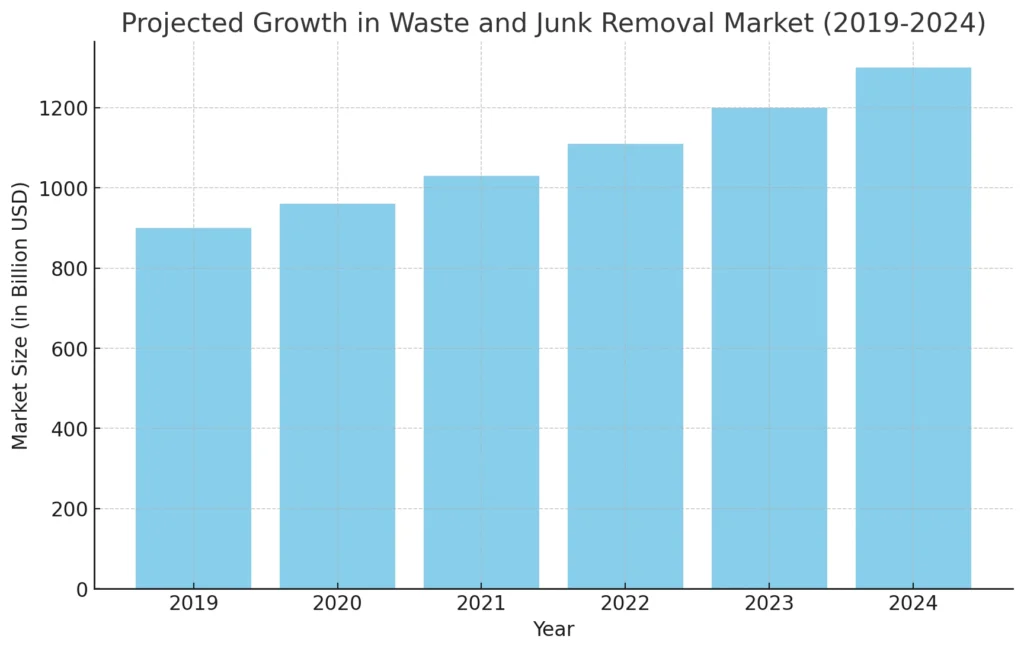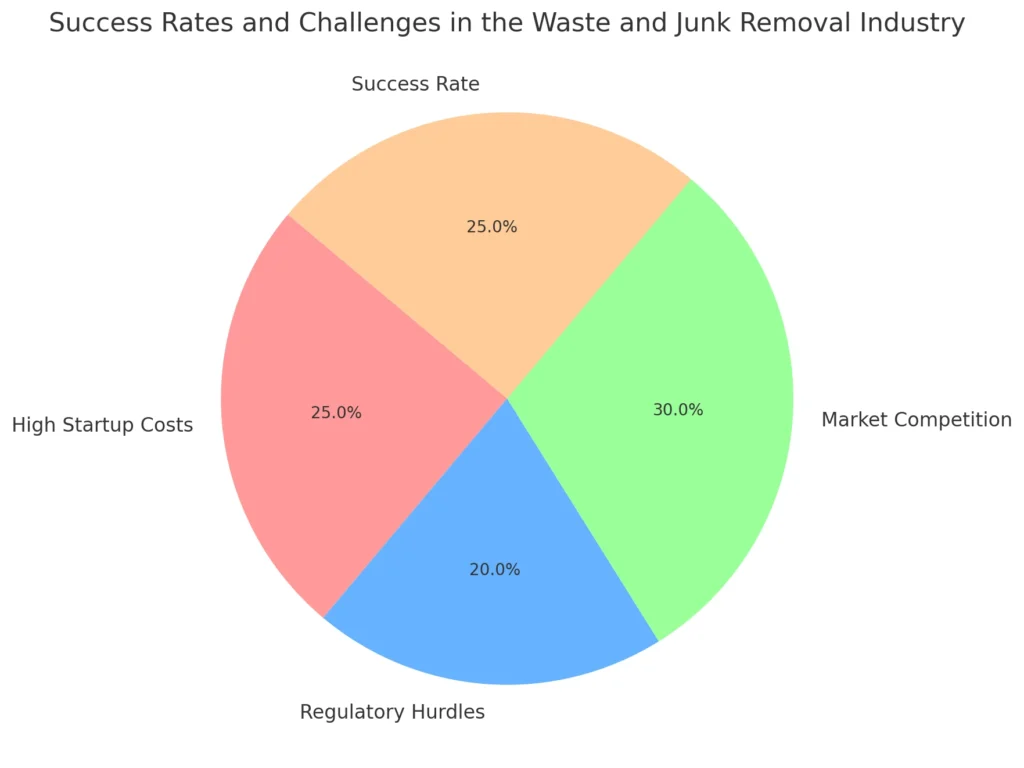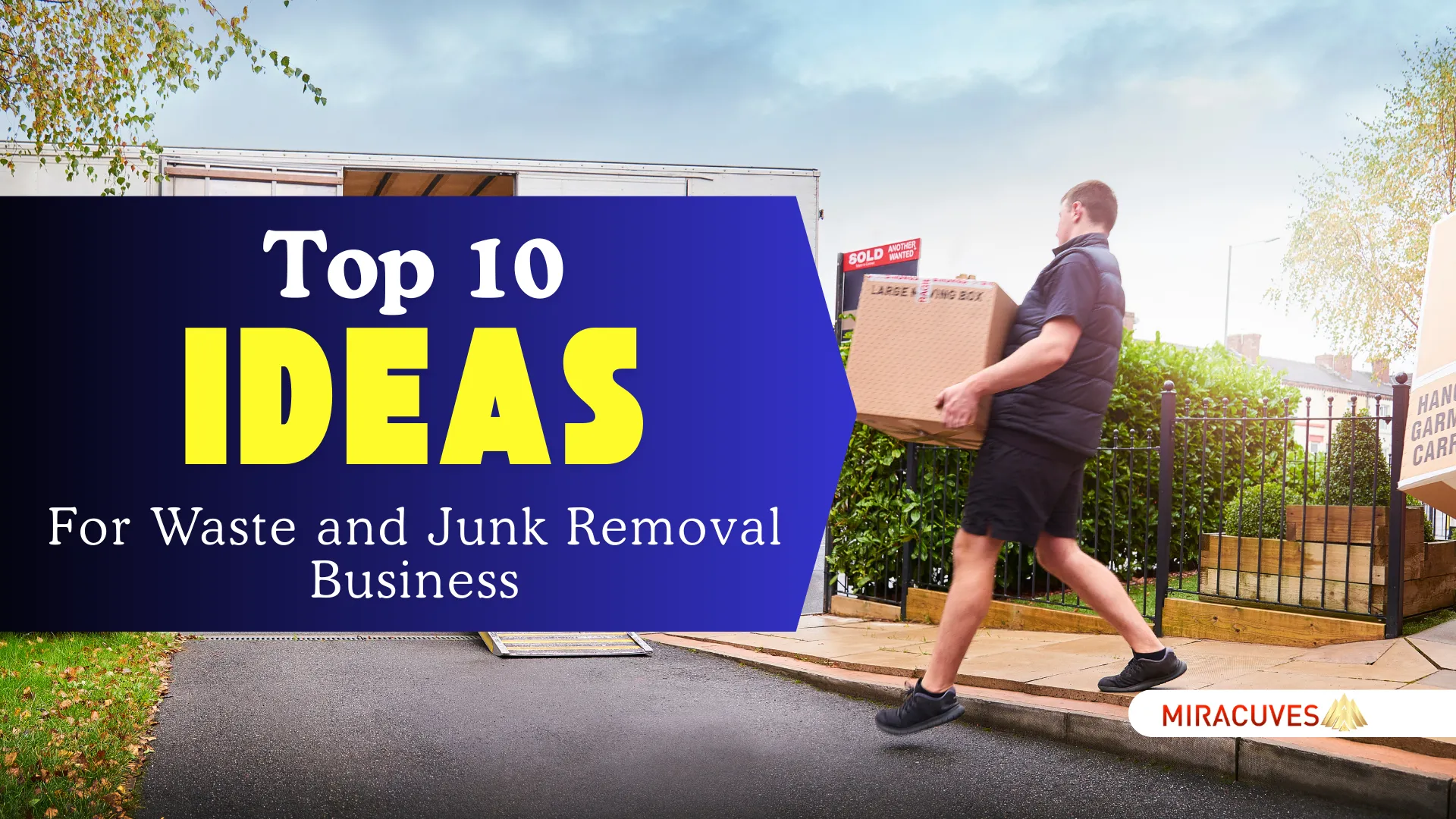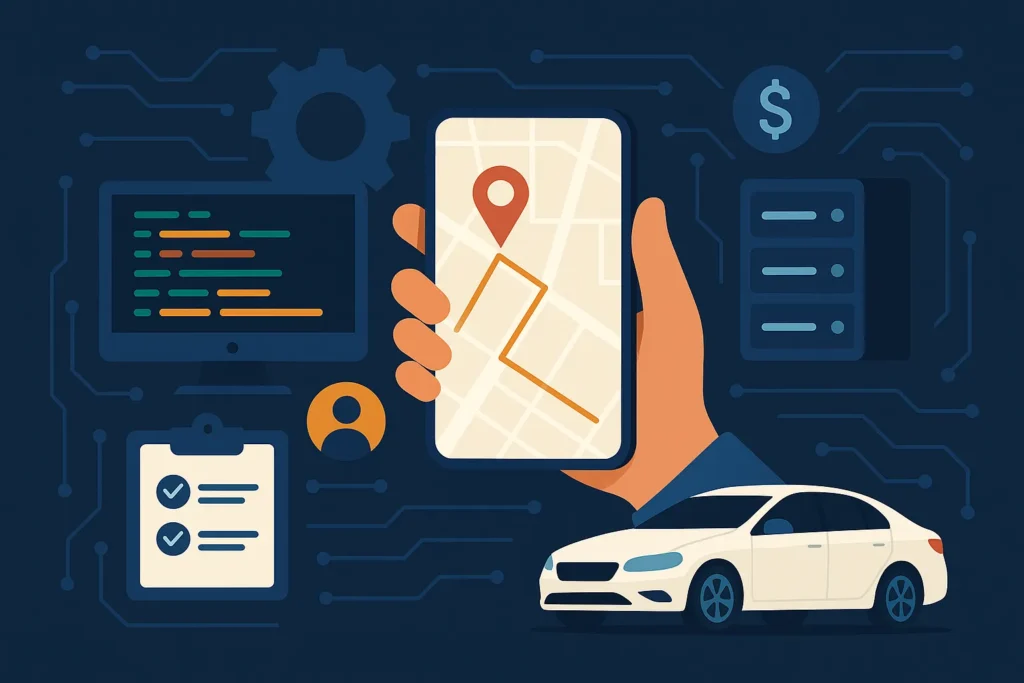In recent years, the waste and junk removal industry has seen a remarkable surge in demand, driven by increased environmental awareness and the rising need for efficient waste management solutions. As people, businesses, and communities continue to generate waste at unprecedented rates, the need for innovative and sustainable waste removal services has become more critical than ever. For entrepreneurs looking to dive into a high-potential market, starting a waste or junk removal business offers a unique opportunity to contribute to environmental solutions while tapping into a profitable industry.
The waste management sector, valued at over $1 trillion globally, is expected to grow steadily due to urbanization, stricter waste disposal regulations, and the growing emphasis on sustainability. This rise in demand spans various niches, from residential junk removal to commercial waste recycling. By focusing on specialized services, eco-friendly practices, and innovative disposal methods, new startups can carve out their place in this evolving market.
With a wide array of business models and low-to-moderate startup costs, waste and junk removal services are accessible for both first-time and seasoned entrepreneurs. Whether it’s handling e-waste, providing on-demand junk pickup, or setting up a composting service, each business idea in this sector offers both financial rewards and the chance to make a positive impact on the planet.
| Metric | Value/Description |
|---|---|
| Global Market Size (2024) | $1.3 Trillion |
| Expected Growth Rate (2024-2028) | 5.3% CAGR |
| Primary Growth Drivers | Urbanization, environmental regulations, rise in consumer waste |
| Top Service Segments | Residential junk removal, commercial waste disposal, e-waste management, recycling services |
| Key Trends | On-demand removal services, eco-friendly disposal, increased recycling focus |
Why Choose Waste and Junk Removal?

The waste and junk removal industry is an attractive option for new business startups, offering both profitability and a meaningful contribution to environmental health. As communities prioritize cleaner spaces and governments impose stricter waste disposal regulations, the demand for waste management solutions has expanded, creating ample room for innovative businesses. Waste removal services cater to various needs—helping homeowners declutter, assisting businesses in disposing of bulky items, and providing specialized solutions for electronic waste and hazardous materials. For many, these services are essential but often lack convenient, eco-friendly options, which presents a prime opportunity for startups.
One of the biggest draws of the waste removal business is its adaptability. Entrepreneurs can start small with local junk pickup services or scale up to address commercial waste management needs. There is also growing interest in eco-conscious waste solutions, where companies can capitalize on trends like recycling, composting, and electronic waste processing. Customers are increasingly willing to pay a premium for services that emphasize sustainable practices, giving new businesses a chance to differentiate themselves in the market. With the right approach, a waste removal startup can turn a simple service into a trusted, community-focused business that resonates with today’s eco-conscious consumers.
Current Trends and Future Opportunities in Waste and Junk Removal
The waste and junk removal industry is undergoing transformative changes, driven by new technologies, shifting consumer preferences, and a heightened focus on sustainability. Today, customers expect more than just a pickup service; they look for responsible disposal, recycling, and even repurposing options. This shift has opened up opportunities for startups to differentiate by adopting eco-friendly practices and innovative technology solutions.
A leading trend is the adoption of on-demand waste removal services, which make it convenient for people to schedule pickups through mobile apps or online platforms. This digital shift meets consumers’ expectations for fast, seamless services and helps businesses optimize routes, reduce fuel consumption, and minimize their environmental impact. Another promising trend is specialized recycling services—particularly in handling electronic waste, which requires safe disposal due to its toxic components. Startups that focus on e-waste recycling are well-positioned to tap into a growing market, as consumers and businesses alike become more mindful of responsible e-waste disposal.
In terms of future opportunities, waste-to-energy technology holds significant potential. As more cities and countries invest in converting waste to energy, companies in this sector can partner with municipalities to manage waste in an environmentally friendly manner while generating energy. Additionally, biodegradable and compostable waste services are in demand, especially for food waste and agricultural by-products. Startups that can provide composting solutions or partner with sustainable farms to process organic waste will meet the rising demand for greener alternatives and benefit from a niche market.
A leading trend is the adoption of on-demand waste removal services, along with specialized recycling services that focus on responsibly handling materials and reducing landfill waste.
| Trend/Technology | Description | Impact on Business and Environment |
|---|---|---|
| On-Demand Waste Removal | Allows customers to schedule pickups via apps or online, offering convenience and flexibility. | Enhances customer satisfaction, reduces fuel use, and lowers carbon footprint. |
| E-Waste Recycling | Specialized services for recycling electronic devices, handling hazardous components safely. | Meets regulatory requirements, prevents toxic waste, and appeals to eco-conscious customers. |
| Waste-to-Energy Technology | Converts waste into usable energy, often through incineration or other processes. | Reduces landfill use, generates renewable energy, and supports municipal partnerships. |
| Biodegradable & Compostable Services | Focuses on composting food and organic waste for sustainable waste disposal. | Reduces methane emissions, appeals to green consumers, and promotes soil health. |
Top 10 Ideas for Waste and Junk Removal Business Startups
Starting a waste and junk removal business offers many lucrative and impactful possibilities. From specialized recycling services to targeted junk removal for niche markets, there’s a range of startup ideas suited to different skill sets, budgets, and community needs. Here are ten top ideas to consider:
| Business Idea | Startup Cost | Target Market | Profit Potential |
|---|---|---|---|
| Residential Junk Removal Service | Low to Moderate | Homeowners, renters, property managers | Moderate |
| E-Waste Recycling | Moderate to High | Households, tech companies, schools | High |
| Construction Debris Removal | High | Construction companies, contractors | High |
| Organic Waste Collection & Composting | Moderate | Restaurants, farms, eco-conscious households | Moderate |
| Hazardous Waste Disposal | High | Hospitals, labs, manufacturing plants | High |
| Furniture and Appliance Removal | Low to Moderate | Homeowners, landlords, moving companies | Moderate |
| Document Shredding and Recycling | Moderate | Banks, hospitals, law firms | Moderate |
| Event Waste Management | Moderate | Event organizers, venues, municipalities | Moderate |
| Estate Cleanout Services | Moderate | Real estate agents, families, probate attorneys | Moderate |
| Waste-to-Energy Solutions | High | Municipalities, large businesses, environmental organizations | High |
1. Residential Junk Removal Service
Assist with the removal and disposal of heavy or unwanted household items, providing convenience for clients.
- Target Market: Homeowners, renters, property managers
- Estimated Costs: Low to moderate (vehicles, disposal fees)
- Startup Requirements: Small team, truck, waste disposal permits
2. E-Waste Recycling
Recycle electronic waste, safely handling valuable metals and harmful chemicals for sustainable disposal.
- Target Market: Households, tech companies, schools
- Estimated Costs: Moderate to high (licensing, secure facility)
- Startup Requirements: Licensing, trained team, secure facility
3. Construction Debris Removal
Clear debris from construction sites, ensuring timely and safe removal to keep projects on track.
- Target Market: Construction companies, contractors
- Estimated Costs: High (heavy-duty trucks, disposal processes)
- Startup Requirements: Trucks, disposal permits, safety gear
4. Organic Waste Collection and Composting
Collect organic waste for composting, meeting the demand for sustainable disposal methods.
- Target Market: Restaurants, farms, eco-conscious households
- Estimated Costs: Moderate (waste processing, compost facility)
- Startup Requirements: Collection bins, composting facility, eco-certifications
5. Hazardous Waste Disposal
Handle hazardous waste with specialized equipment and protocols to protect health and safety.
- Target Market: Hospitals, labs, manufacturing plants
- Estimated Costs: High (specialized tools, training, permits)
- Startup Requirements: Specialized training, protective equipment, disposal permits
6. Furniture and Appliance Removal
Provide removal services for large items that are difficult to dispose of, often partnering with donation centers.
- Target Market: Homeowners, landlords, moving companies
- Estimated Costs: Low to moderate (vehicle, disposal expenses)
- Startup Requirements: Team, truck, partnerships with donation centers
7. Document Shredding and Recycling
Offer secure document shredding and recycling to meet privacy requirements and ensure data security.
- Target Market: Banks, hospitals, law firms
- Estimated Costs: Moderate (shredding machines, secure facility)
- Startup Requirements: Shredding machines, collection bins, secure facility
8. Event Waste Management
Manage waste collection and recycling for large events, helping organizers handle cleanup.
- Target Market: Event organizers, venues, municipalities
- Estimated Costs: Moderate (temporary equipment rentals)
- Startup Requirements: Team, temporary waste bins, recycling partnerships
9. Estate Cleanout Services
Provide sensitive and efficient estate cleanout services following a sale or family transition.
- Target Market: Real estate agents, families, probate attorneys
- Estimated Costs: Moderate (disposal fees, vehicle expenses)
- Startup Requirements: Team, trucks, respectful handling protocols
10. Waste-to-Energy Solutions
Convert waste into energy, providing an eco-friendly alternative to disposal that benefits the environment.
- Target Market: Municipalities, large businesses, environmental organizations
- Estimated Costs: High (advanced machinery, energy partnerships)
- Startup Requirements: Partnerships with energy plants, sophisticated equipment
Real-World Examples
The waste and junk removal industry has seen several success stories, from small startups to large-scale operations, each finding unique ways to serve their communities and drive profits. Understanding the real-world journeys of these companies offers valuable insights for anyone looking to start in this industry. Below are examples of how different waste removal businesses have carved out their niches, overcome challenges, and grown sustainably.

One example is a local junk removal startup that began with a single truck and a focus on customer service. By building a reputation for quick, reliable, and friendly service, this business expanded its client base to include small businesses and local offices. This startup set itself apart by providing on-demand services through an easy-to-use app, allowing customers to schedule pickups within hours. Over time, they expanded to serve multiple cities, partnering with donation centers to ensure that reusable items found new homes instead of ending up in landfills.
Another inspiring example is a small e-waste recycling company that recognized the growing problem of electronic waste. They started by partnering with local tech firms and schools to collect obsolete electronics, and over the years, built a state-of-the-art recycling facility. Today, this business not only recycles valuable materials but also refurbishes usable parts for resale, creating a sustainable, revenue-generating cycle. Their focus on environmental responsibility, paired with educational outreach on e-waste disposal, has made them a trusted name in the community.
A waste-to-energy startup demonstrates how innovative technologies can reshape the waste industry. This company converts organic waste into biogas, which is used as a renewable energy source. By collaborating with local farmers and municipalities, they have reduced landfill waste while providing clean energy. Although they faced initial challenges with high startup costs and regulatory approvals, their perseverance and commitment to sustainability helped them secure funding and become a pioneer in waste-to-energy solutions.
Mistakes to Avoid When Starting a Waste and Junk Removal Business
Starting a waste and junk removal business can be rewarding, but like any venture, it comes with potential pitfalls. Knowing the common mistakes entrepreneurs make in this field can save you time, money, and headaches, allowing your business to grow smoothly. Here are some of the key missteps to avoid:
- Skipping Market Research
Jumping into the business without understanding your target market can lead to challenges later on. Market research helps you determine the demand, identify competitors, and understand customer preferences. This information is essential to design services that stand out and appeal directly to potential clients. - Underestimating Startup Costs
Waste removal may seem straightforward, but equipment costs, fuel expenses, disposal fees, and permits can add up quickly. Many new entrepreneurs start small with a limited budget, only to realize that scaling up will require additional resources. Budget carefully and plan for ongoing expenses to avoid cash flow issues down the line. - Overlooking Regulations and Permits
Waste removal businesses are subject to strict regulations and require permits for disposal, especially if you handle hazardous materials. Failing to secure the necessary licenses can result in hefty fines or even business closure. Ensure you’re up-to-date with local and state laws and stay compliant to operate smoothly. - Neglecting Customer Service
Customer service is a critical aspect of waste removal services, especially when dealing with residential clients. Responding promptly to inquiries, being punctual, and handling items respectfully will create a strong reputation for your business. Poor customer service can result in negative reviews and lost clients. - Not Diversifying Services
Offering just one type of waste removal may limit your growth. Many successful businesses diversify by providing multiple services like e-waste recycling, furniture removal, and even seasonal services like yard waste cleanup. This flexibility can increase your revenue and attract a broader customer base. - Ignoring Safety Standards
Safety should always be a priority in waste removal, as employees often handle heavy, bulky, or hazardous items. Implementing safety protocols, training staff, and investing in safety gear will help prevent accidents and protect your team, creating a safer work environment.
Waste removal businesses are subject to strict regulations and require necessary licenses to operate, especially when handling hazardous materials.
| Common Mistake | Preventive Measure |
|---|---|
| Skipping Market Research | Conduct market research to understand demand, competitors, and customer preferences. |
| Underestimating Startup Costs | Budget carefully, accounting for equipment, permits, and ongoing expenses to avoid cash flow issues. |
| Overlooking Regulations and Permits | Obtain all necessary licenses and stay updated on local regulations to ensure compliance. |
| Neglecting Customer Service | Prioritize customer service by responding promptly and handling items carefully to build a strong reputation. |
| Not Diversifying Services | Offer multiple services like e-waste recycling or seasonal cleanup to attract more clients and increase revenue. |
| Ignoring Safety Standards | Implement safety protocols, train staff, and invest in safety gear to protect employees and ensure a safe work environment. |
Why Trust Miracuves Solutions for Your Next Project?
When venturing into the waste and junk removal business, having the right technological support can make all the difference. Miracuves Solutions offers a unique blend of expertise and innovation tailored specifically for startups in waste management. With years of experience in app development and software solutions, Miracuves Solutions provides businesses with ready-made, cost-effective tools designed to streamline operations, enhance customer engagement, and optimize service delivery.
One of the key benefits of choosing Miracuves Solutions is its commitment to fast, customized app solutions. Miracuves Solutions understands that time is essential, especially in a competitive field like waste management. By delivering app solutions in record time—typically in just 10 days—Miracuves Solutions ensures that your business can start attracting customers and building brand loyalty quickly. Furthermore, with costs set at only 10% of the global average, the investment remains budget-friendly without compromising on quality or functionality.
For a waste removal business, having a reliable app means seamless scheduling, real-time updates, and efficient route management. Miracuves Solutions creates apps that make these essential functions accessible and user-friendly, allowing business owners to focus on what matters: delivering excellent service. By integrating Miracuves’ app solutions into your operations, you’ll have a powerful tool that supports business growth, customer satisfaction, and sustainability in one comprehensive package.
Conclusion
Starting a waste and junk removal business offers a unique blend of profitability and positive environmental impact. As consumer demand grows for efficient, eco-friendly waste solutions, the industry is ripe with opportunities for entrepreneurs ready to make a difference. Whether you’re focusing on niche services like e-waste recycling or offering versatile options like residential junk removal, the right business model can lead to lasting success.
The journey from idea to operation is made smoother with careful planning, understanding of market trends, and avoiding common pitfalls. With thorough preparation, a commitment to excellent service, and, if desired, technological support from experts, you can build a business that not only thrives financially but also contributes meaningfully to the environment. Now is the time to take that first step, select the right niche, and launch your waste removal startup confidently.
FAQs
What is the startup cost for a waste and junk removal business?
The startup cost varies based on your niche, but typically ranges from low to moderate. Essentials include a vehicle, necessary permits, and any specific equipment, which could start around a few thousand dollars.
Do I need special permits for junk removal?
Yes, depending on your location and services, specific permits may be required, especially for hazardous or regulated waste. It’s essential to check local regulations to ensure compliance.
How profitable is a junk removal business?
With demand on the rise, a waste and junk removal business can be highly profitable, especially if you offer diverse services. Targeted, efficient operations and good customer service often yield high returns.
What skills are necessary to succeed in this industry?
Key skills include organization, customer service, time management, and basic understanding of waste management regulations. An eye for efficiency and a commitment to safety are also valuable.
How can I make my waste removal business eco-friendly?
Consider offering recycling services, donating reusable items, or partnering with eco-friendly disposal facilities. Implementing sustainable practices can also set your business apart from competitors.







